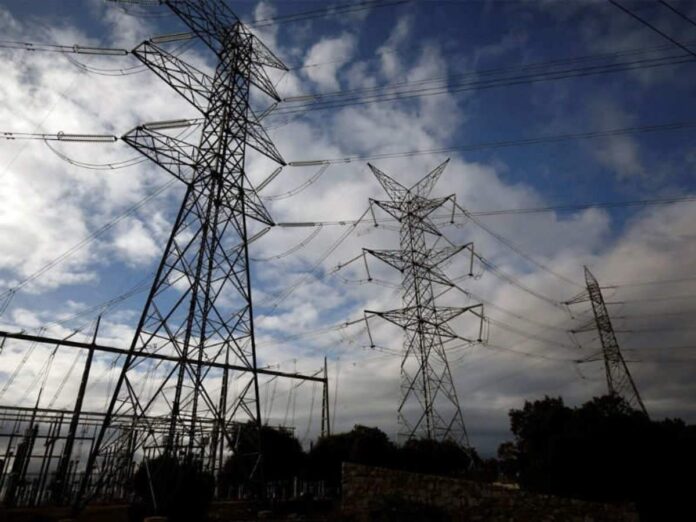The federal government’s decision to introduce amendments to the Regulation General, Transmission and Distribution of Electric Power Act, 2021 has sparked concerns regarding potential favoritism towards certain power companies.
According to sources, a draft ordinance, titled the “Regulation General, Transmission and Distribution of Electric Power (Amendment) Ordinance, 2023,” has been forwarded to the acting President for approval.
The proposed amendments have raised eyebrows due to their potential impact on the NEPRA sector and the increased powers they would grant to the chairman, as well as changes in the appointment criteria. Critics argue that these changes could compromise the independence of NEPRA’s decision-making process, as they open the door for political interference.
One controversial amendment pertains to the eligibility criteria for the chairman position. The amendments would allow both serving and retired civil servants, as well as retired officers of Grade 22 or equivalent, to be appointed as chairman. This provision has raised concerns about the potential for political influence in NEPRA’s operations.
Furthermore, the proposed amendments seek to abolish the age limit of 60 years for the chairman, which would enable individuals to hold the position indefinitely. Critics worry that this could hinder fresh perspectives and impede innovation within NEPRA, as individuals may remain in the position for an extended duration.
Another amendment requires a minimum of 20 years of relevant experience for the qualification of chairman. While experience is valuable, critics caution that such a stringent requirement could limit the pool of qualified candidates and hinder diversity and the introduction of fresh ideas.
Of particular concern is the increase in the powers of the chairman. Under the amendments, the chairman would have the final decision-making authority in cases where there is a lack of consensus among the members. This concentration of power has raised doubts about the checks and balances within NEPRA.
The proposed NEPRA authority structure would consist of a chairman appointed by the federal government, along with four specialized members. The centralized appointment process has drawn criticism, as it may allow for the selection of individuals sympathetic to the interests of specific power companies. Critics argue that this could compromise the fair and transparent functioning of NEPRA.
Sources also said that the centralized appointment process has raised concerns about the potential for political influence in the selection of individuals who may be sympathetic to the interests of certain power companies. They argued that these amendments, if enacted, could lead to decisions that favor specific power companies, potentially compromising the fair and transparent functioning of NEPRA. They stress the importance of maintaining the independence of regulatory bodies to ensure that decisions are made in the best interest of the public and the overall energy sector. Proposed amendments should ensure that NEPRA retains its integrity, independence, and ability to make impartial decisions that promote a sustainable and efficient power sector for the benefit of the nation as a whole, sources urged.
A thorough review of the proposed amendments to safeguard NEPRA’s integrity and ability to make impartial decisions seems imperative, they added.
As draft ordinance awaits the acting President’s consent, industry experts, consumer rights groups, and opposition parties closely monitor the situation. They emphasize the need for transparency and fair decision-making within NEPRA, advocating for policies that promote a sustainable and efficient power sector benefiting the nation at large.
According to the draft ordinance, the Authority shall consist of the Chairman to be appointed by the federal government and four members, one from each province to be appointed by the federal government after consideration of the recommendations of the respective provincial government. Every member shall be a person known for his integrity and eminence having experience of not less than twelve years in the fields of corporate or energy laws, corporate finance, chartered accountancy, cost and management accountancy, energy or power or a serving or retired civil servants in BS 21/22 or equivalent, preferably with experience in power sector.
Provided that the incumbent members of the Authority shall be deemed to have been appointed from each province without the allocation of any specific portfolio.
The Chairman shall be a person with a minimum of twenty years of experience in the fields of power/energy, administration, law, and corporate finance or he shall be serving or retired civil servant in BS-22 or equivalent preferably with experience in power sector. The Chairman shall be appointed by the federal government on certain terms and conditions.
The Chairman should ensure the efficient and effective exercise of the Authority’s power and the performance of its functions under this act and allocation of functions and work to other members shall be decided by the Authority.
Three members of the Authority including the Chairman shall constitute the quorum requiring a decision by the Authority. However, in the absence of the Chairman or the Chairman not being in his position, other members shall elect an acting Chairman by majority vote for the meeting requiring decision by the Authority.
Decision of the Authority shall be taken by the majority of its members present, and in case of a tie, the Chairman shall have a casting vote.
The Authority shall be exclusively responsible for regulating the provision of electric power service.
The Authority shall act in accordance with the policies, and guidelines as may be issued by the federal government from time to time.
The Federal Government shall have the exclusive power to clarify any inconsistencies which may arise between such policies, plans, or guidelines.




